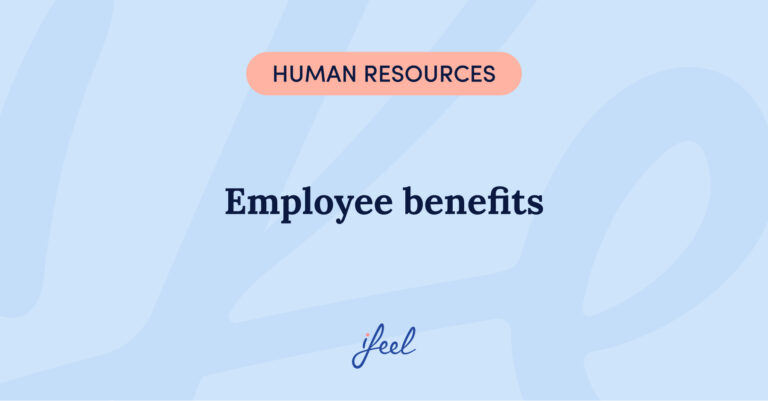The request for help from experts in employees’ emotional well-being has multiplied by 4 compared to last year. This indicates that large companies want to invest in this human capital to make progress in the coming months.
In fact, more than half of the organizations point out communication and team cohesion as their main concerns. In this article, we would like to discuss these key issues for HR departments in 2023.
Employees’ emotional well-being, a key issue in 2023
The beginning of the year is an important time for companies. It is time to review what has been achieved in recent months and to set goals and expectations for the coming quarters. HR managers are no strangers to this dynamic: they are in charge of enhancing the workforce’s well-being and putting it at the service of smarter productivity.
OKRs for Human Resources Managers
To succeed in their task, they need to boost some aspects that, when working properly, set them apart from their competitors. Many of these companies will join those that already have the help of well-being experts in 2023 to provide the ultimate push to their results.

It makes sense for HR managers to channel these efforts in a concrete and strategic manner, setting out OKRs for the HR department that can foster employees’ emotional well-being. These objectives must be defined operationally, i.e., qualitatively and quantitatively, to make their evaluation more effective. Now you can easily take care of employees’ emotional well-being thanks to this OKR guide for HR managers.
Help from experts in occupational well-being
At ifeel, we provide large corporations with a global emotional well-being service for the workforce. Among other resources, we have a work environment survey with which we can help HR managers to evaluate to what extent their well-being strategy is effective and correct those aspects that need to be addressed.
Thanks to our constant communication with many HR managers from different sectors, we collect their daily requests to improve the quality of life of the people in their charge.
As a result of these requests, we have detected the primary needs in the HR field, which will set the trend in this area during the year that has just begun.
People come first
In this sense, the conclusions at year-end are compelling: people come first, especially in times of change and great uncertainty. In fact, requests for training, counseling, and other healthcare resources from psychologists who are experts in workplace well-being have increased by 4 times since January 2022, and this trend is expected to consolidate in the coming months.
Our research shows that one of the main concerns for companies is reducing absenteeism by acting on those triggers related to employees’ emotional well-being and psychological distress. Organizations know this cannot be achieved without healthily integrating work with the other aspects of employees’ lives.
In addition, around 65% of large companies rank improving communication between departments and team cohesion as their first concern, followed by the interest in strengthening the capacity for self-care of overall well-being.
Risks to employees’ emotional well-being
According to the Ministry of Labor, psychosocial risks to workers’ health are job characteristics that have a positive or negative influence on the psychological well-being of employees.
These factors include, for example, the workload and pace of work or the ability to develop professionally within the company. HR managers need to have tools to help them manage these phenomena. They can do so through this resource on burnout prevention in the office.
These psychosocial risk factors can come from a variety of sources. Here are four sources of risk to employees’ emotional well-being that you should be aware of:
1. Task characteristics
The degree of danger or complexity of the task to be performed and its ability to motivate the worker can become a psychosocial risk factor for employees’ emotional well-being.
2. Organization and methodology
It is important to take care of team coordination and encourage the efficiency of the processes through good leadership of those in charge, capable of achieving quality internal communication.
3. Work environment and quality of relationships
At this point, we are talking about the level of cohesion within the team, nurtured by the bonds of trust and cooperation among its members.
4. Working conditions
Salary, material resources, time availability, job location, and perception of insecurity for physical health are important aspects to consider regarding the prevention of psychosocial risks at work.
Main HR needs for 2023
As a global emotional well-being service for companies, we have listed the main needs expressed by large companies that will set the trend in the HR field by 2023.
1. Improve interdepartmental communication
As a company grows, its structure becomes more complex. That’s why good internal communication is essential to improve performance. Unfortunately, this is often an area where conflicts or weaknesses arise that HR managers need to address.
2. The cohesion of distributed teams
Remote work, hybrid formats, departments based in different countries, languages, and time zones… Maintaining team cohesion despite the difficulties and effectively coordinating tasks is still on the radar in people management.
3. Increasing emotional intelligence
Emotional intelligence is essential for successful relationships, even in the workplace. That is why HR managers ask for professional help to improve their abilities and their teams’ in this area.
4. Taking care of interaction with peers
Regular contact brings closeness between coworkers, but it also has other effects that should be managed properly. HR managers continue to seek help in areas such as conflict resolution, improving social skills, active listening, or the ability to give/receive feedback.
5. Enhancing mental health self-care in the office
All of the above issues are related to employee well-being. However, HR managers also seek training and information to support their team members and encourage implementing best practices for mental health care on and off the job. They know it is essential to prevent problems such as burnout, as well as excessive stress and anxiety stemming from work, and for this, they need the help of end-to-end emotional well-being services for companies such as ifeel.

Protecting emotional well-being in organizations
At ifeel, we are excited about the new year and the possibility of helping more and more companies to design their corporate strategies to enhance employees’ emotional well-being.
That’s why we provide a global emotional well-being service for companies designed by our team of psychologists who are experts in well-being at work. This collaboration allows People, Talent, and Human Resources managers to receive personalized, data-driven advice on caring for the psychological well-being of the teams in charge.
Do you belong to the Human Resources department in your organization? Try our program now to see how it could help you.
In addition, our program offers all employees a complete mental health care service that includes emotional support and online therapy with one of our professionals.
Remember, you can find different materials in our Resources section, such as Podcasts, HR Guides on various topics (e.g., employee experience or how to design a good HR strategy), or Interviews with important HR positions. In addition, we have a Psychosocial Risk Factors Template, which you can use to comply with the requirements of the Labor Inspectorate.
We hope you found this post about trends in employees’ emotional well-being in 2023 interesting. If you would like more information about our emotional well-being program for companies, simply request it, and we will contact your team as soon as possible.











